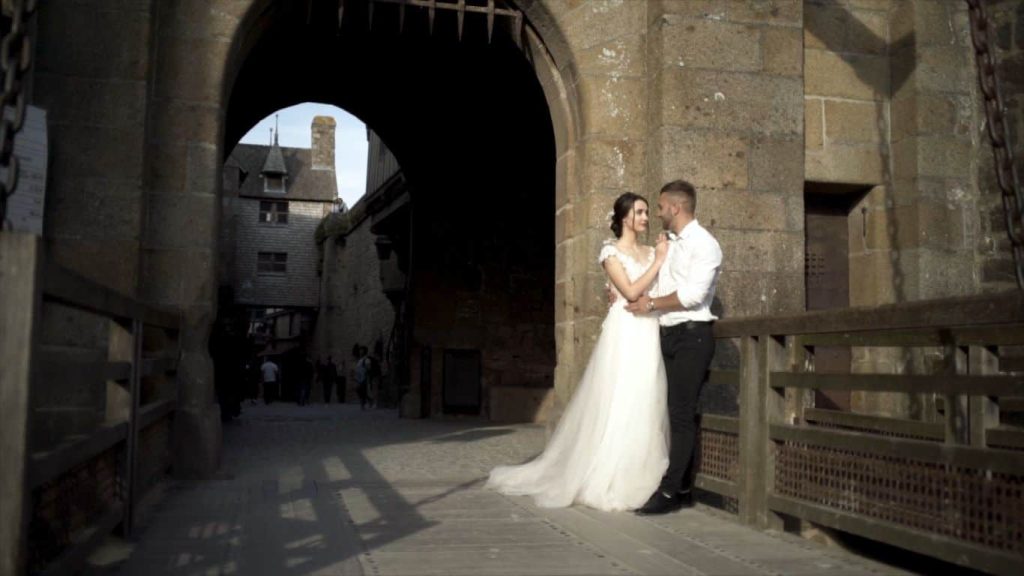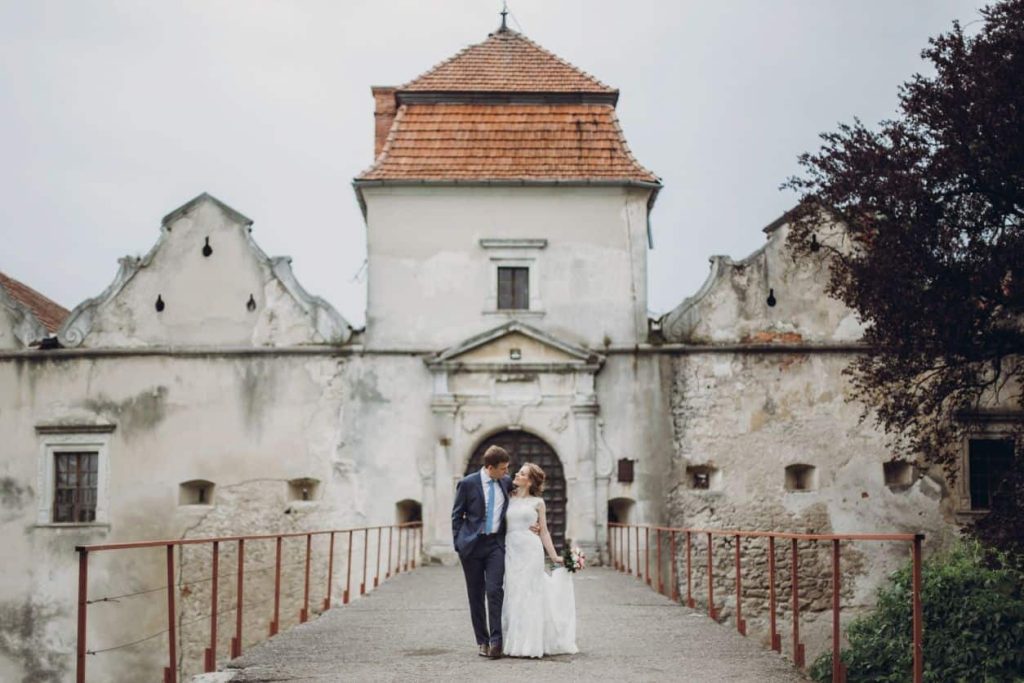Writing your wedding vows is an intimate and special act; you make your promises to the love of your life, showing them your commitment and dedication. The more you personalize your vows, the more impactful they will be for you and your partner.
If you and your partner are passionate about history, medieval wedding vows are a fantastic way to honor your relationship and your interests. Below are 10 examples of medieval-inspired wedding vows, along with a discussion of the elements of these vows.
Medieval Wedding Vows: Charming Examples

- “In the presence of God and these our friends, I, (your name), take thee, (partner’s name), as my lawful spouse. I vow to love thee with a love as enduring as the castles of old, till death us do part.”
- “I, (your name), pledge to thee, (partner’s name), my love, my sword, and my service, from this day forth. As the knight serves his king, so shall I serve thee in all things.”
- “As a (lord/lady/noble) of grace and dignity, I, (your name), take thee, (partner’s name), to be my wedded spouse. To comfort thee in adversity, to care for thee in sickness, and to honor thee above all others until death parts us.”
- “(Partner’s name), I promise to love thee as the moon loves the night, as the minstrel loves his lute. Our love shall be a melody, forever sung in our hearts.”
- “In the sight of God and all here present, I, (your name), take thee, (partner’s name), as my spouse. I pledge to build with thee a hearth of warmth, a home of joy, till the end of our days.”
- “I, (your name), with nothing more to give than my heart, do pledge to thee, (partner’s name), my unwavering love. I promise to be thy companion, in wealth or want, in joy or sorrow, till death us do part.”
- “Before the eyes of God and those we hold dear, I, (your name), bind myself to thee, (partner’s name). As the sacred texts bind wisdom, so do I bind my life to thee, in love and honor, until the last of my days.”
- “I, (your name), present to thee, (partner’s name), this rose as a symbol of my love. Just as the rose endures the winter, so too will my love endure, through all trials and tribulations, until death takes us from this world.”
- “Like a troubadour who pledges his song, I, (your name), pledge my love to thee, (partner’s name). Our lives will dance to the rhythm of our hearts, in harmony and happiness, until the final sunset of our days.”
- “Today, (partner’s name), I join the thread of my life with yours. Together, we shall weave a tapestry of love, as intricate and enduring as those hung in the halls of ancient kings, to tell our story for all our days and beyond.”
Elements of a Wonderful Medieval Wedding Vow

If you want to take inspiration from the list above and write unique medieval wedding vows, here are some elements that make a wedding vow medieval.
- Old English Language: nothing will capture the aura and atmosphere of the era more than incorporating Old English into your vows. Words like “thee,” “thou,” and titles like “lord,” “lady,” and “noble” will give your vows a tastefully archaic touch.
- Religious Undertones: during this era, religion played a central role in every person’s life. If you and your partner are religious or having a religious ceremony, incorporating religious themes such as calls to God or deities will be a great addition.
- Chivalric Ideals: chivalry refers to the medieval knightly system that contained social, moral, and religious ideals. Knights, horsemen, and noblemen were expected to espouse loyalty, courage, honor, love, service, and devotion. Consider incorporating these values into your medieval wedding vows.
- Symbolic Rituals: during the medieval era, ceremonies typically included rituals such as handfasting. Consider integrating these not only into your wedding vows but also into your wedding itinerary.
- Emphasis on Nature and Courtly Love: the ideas of chivalry and nobility combine to form the concept of courtly love—going on adventures through nature and performing tasks to prove your dedication and commitment. Consider working these notions into your medieval vows as metaphors.